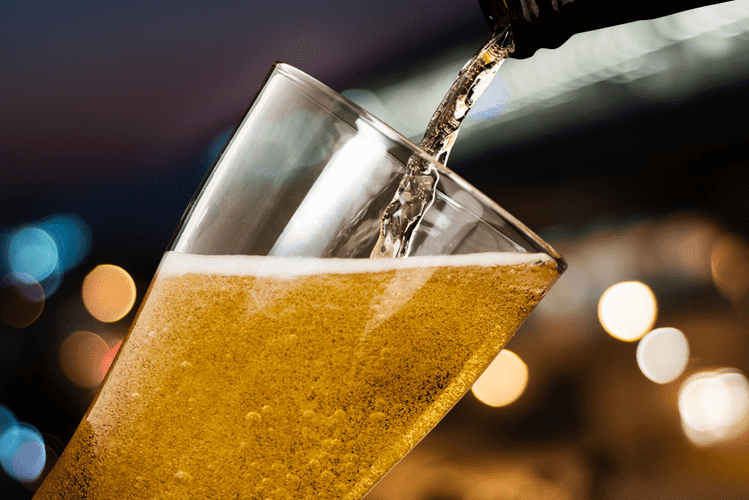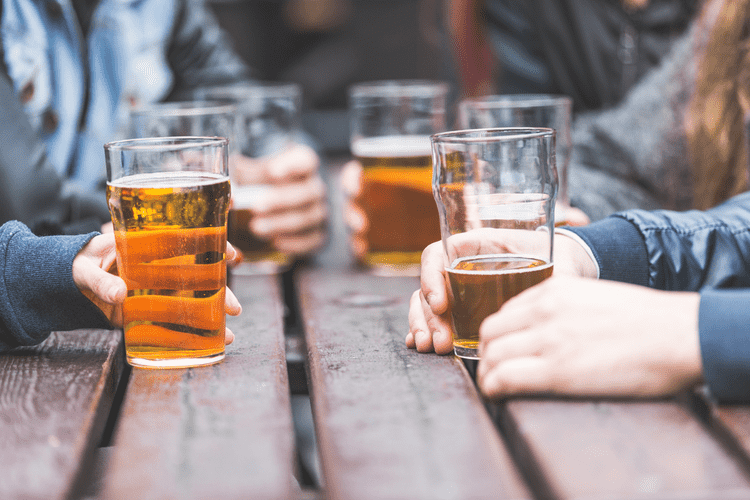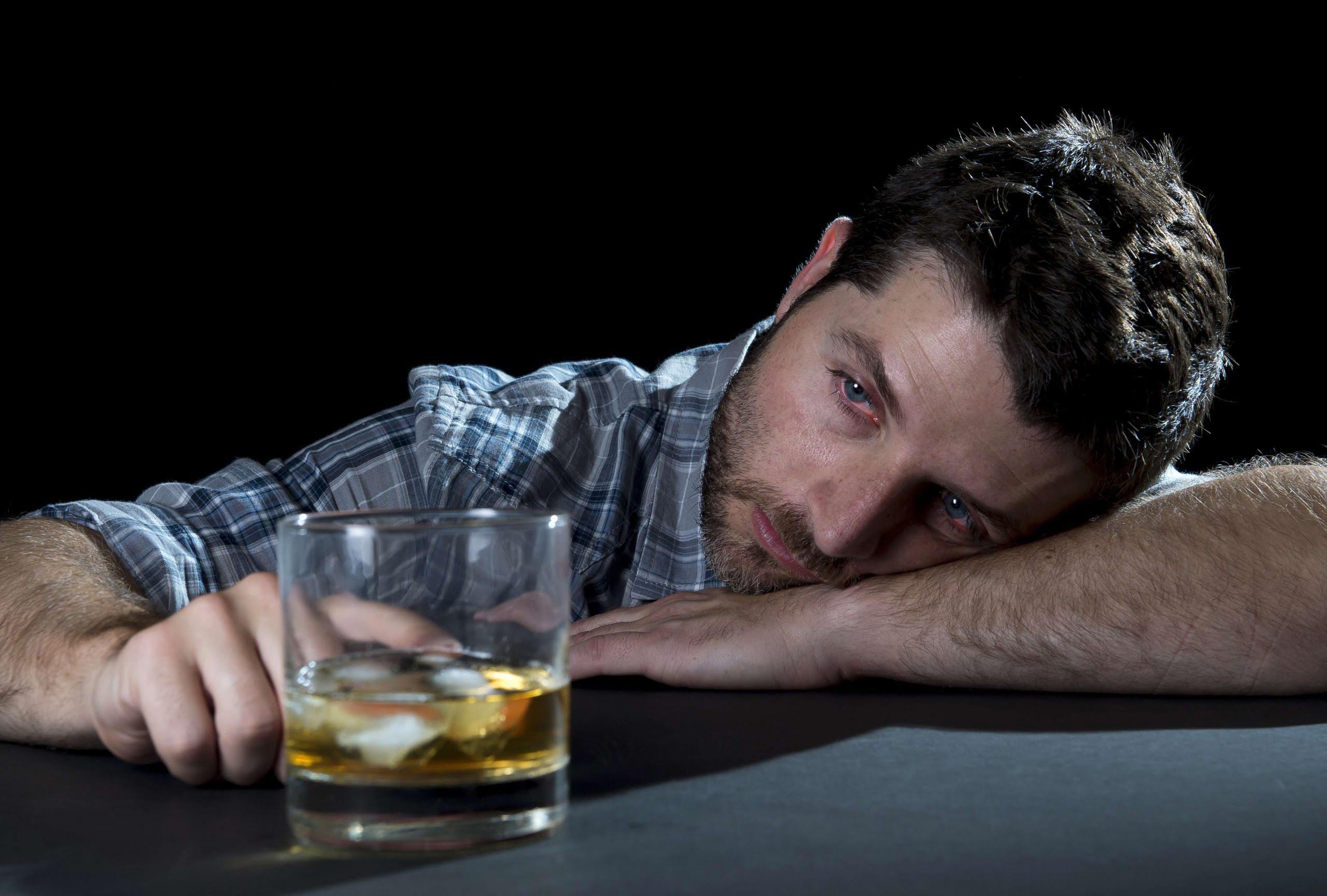Returning To School After Rehab
Content
Recent research has shown that roughly half of the people who enter a treatment program for their drug or alcohol addiction will relapse within less than a year of being released from it. Regardless of your situation and the severity of your relapse, it’s important to remember that relapse doesn’t mean failure. Instead, relapse is an indication that your treatment and relapse prevention plan needs some kind of adjustment or reinforcement.
(They offered him rehab and help he said no. Usually when people immediately relapse they do that same exact thing. They keep declining it cause they know they'll be ashamed going back. I should know it happened to my cousin who relapsed with pain pills.
— The Original Alpha Not @Finn Balor (@ThePrinceFinn) December 9, 2021
In order to reduce the risk of relapse, a rehab center that has an aftercare program is also very important. But a man or woman who is addicted to alcohol may want to enter a 12-step program instead. Some of the other treatment options that are available include partial hospitalization, inpatient and outpatient therapy, and aftercare programs.
Rehab Amy Winehouse Song
Your substance abuse counselor will use techniques like cognitive behavioral therapy to help you analyze your relapse. You will learn how to identify triggers, cope with cravings, and intervene if you begin slipping away from your recovery again. You will also analyze the emotions you feel regarding your relapse to help you overcome any regret, shame, or embarrassment you may be experiencing. Lastly, you’ll work closely with your therapist to develop an adjusted relapse prevention plan that addresses your unique needs. Turnbridge operates leading mental health and substance abuse treatment programs throughout Connecticut.
AddictionResource.net is not a medical provider or treatment facility and does not provide medical advice. AddictionResource.net does not endorse any treatment facility or guarantee the quality of care provided, or the results to be achieved, by any treatment facility. The information provided by AddictionResource.net is not a substitute for professional treatment advice. Finding a rehab center that offers relapse prevention programs isn’t easy, especially for someone who needs specialized care because of their specific addiction. If it’s time for your loved one to reenter addiction treatment, or you need more information about rehab facilities, contact a dedicated recovery provider today. Many people in the workplace struggle silently with a substance use disorder. If you or a loved one needs treatment, The Recovery Village can help.
Treatments
My guess is that he bounces back between being a christian and falling out of the faith, over and over. Romanticizing substance use in the past or minimizing consequences you have experienced. Remembering people, places, and things connected to your substance use. 10 Ways To Help An Alcoholic Family MemberEven though things may seem helpless, they aren’t.
My father had been getting bounced from hospital to LTAC to rehab care for more than a year. When he passed he happened to be at an LTAC as a bridge before going back to his care facility. Yesterday, they called me at 10 am to tell me that he could fight no more.
— Carl (@thebuckeyegamer) December 1, 2021
In doing so, they suffer a relapse without knowing what will happen next. If your loved one decides to give the 12 step programs a chance, finding the right sponsor and working their steps should be a priority. However, keep in mind that each person’s recovery will look different, and not all people decide to get help through the 12 steps. Exploring your area for local AA, CMA, HA, or NA support groups could demonstrate to your addicted loved one that you are here to support them and know what they need in early recovery. A big part of living a life of recovery is being accountable for your actions and being proud of the time and effort you’ve put into maintaining your sobriety.
Personal Tools
You cannot use the experience of your last recovery verbatim. You will have to accept some new direction, willingness, and surrender to start anew. Set aside what you think you know, and you will see a different way of doing things that will give you the fresh start you deserve. Talking to your loved ones about their recovery openly and honestly ensures that both of you can be on the same page, and you can help support their sobriety as much as you possibly can. Your loved one has to account for all the wrongdoings they did while on drugs.

A slip or lapse may not always warrant a trip back to rehab if you are honest about your relapse with your sponsor or therapist and begin taking steps to improve your recovery. At the same time, someone who has been sober for 10 years with a solid foundation in recovery may not need to go to rehab if he or she has the proper support system and plan in place. However, there are many circumstances in which it is in your best interest to go back to drug rehab after your relapse. It’s important for family members to remember that relapse is often a part of the recovery process.
We’re Ready To Help You Begin A New Life
Ultimately this step is all about decreasing triggers whenever possible. Not only is it dangerous to have drug-related items hidden randomly in the house, but removing that temptation could save a life from an overdose. Doing a thorough cleaning of your house could directly impact the difference between a 3-minute craving and a relapse. Removing those temptations before they return could be the best thing for them and your family. You first want to make sure to go through your home as much as possible to eliminate any items such as drugs or paraphernalia. When you have a loved one coming home after rehab, there may be some changes that need to be made to the home to make it a comfortable and safe living environment. L.A.-based Terra Naomi performed the song acoustically on YouTube in March 2008.
- It’s an opportunity to reassess your current treatment plan and continue to move forward in recovery.
- Retuning to rehab provides the opportunity to try an approach that is different from previous treatment.
- By definition, a chronic illness is one that can’t be cured and requires continuous treatment.
- If you’re neglecting your eating habits or sleep and feeling stressed or overwhelmed, you may be more likely to relapse.
Regardless, relapse is a fairly common part of recovery for many people. In fact, the National Institute on Drug Abuse estimates that between 40-60% of people who complete rehab will relapse. If this individual were to continue drinking, returning to old behaviors that were broken in rehab, he or she can be said to have relapsed. If you find yourself considering going back to rehab, you may wonder if this means your first treatment failed.
Preparing For A Loved Ones Return From Rehab
There are also booster sessions available at some rehab facilities, which can be ideal for some people who have relapsed after recent treatment. These short-term outpatient sessions can provide the benefits of rehab without requiring you to check into a full rehab program. Your original rehab program might offer this option to you as aftercare, or another, a local treatment center may be able to provide these sessions. Self-belief and confidence in your ability to stay clean are essential elements of your long-term sobriety. Part of your treatment likely involved bolstering your self-esteem and learning (or re-learning) that you’re strong and capable of handling the stresses of life, family, and school without using drugs. In fact, if you’re in the early stages of recovery, you may feel super-strong, filled with energy, and close to invincible. At the same time, it’s critical to remember what got you there.
Keep away from triggers that will increase the likelihood of escalating relapse. For example, someone with an alcohol use disorder should avoid going to a bar or seeing their old drinking buddies. If you’ve determined that you actually need to enter rehab, consult a professional, especially if issues like cost or insurance coverage are the main stumbling blocks. A drug treatment regimen may need adjustments to be successful or another program may be beneficial. Whether or not relapse is a “normal,” or even necessary, part of drug-addiction recovery is debatable. Use this opportunity to apply what you’ve already learned to a new challenge and give yourself the space and time you need to grow.
NRL star Brett Finch’s fans worried before he went to rehab – as he opens up on hitting rock bottom – Daily Mail
NRL star Brett Finch’s fans worried before he went to rehab – as he opens up on hitting rock bottom.
Posted: Thu, 09 Dec 2021 08:40:27 GMT [source]
She also replaced several times the lyrics, “I’m gonna lose my baby”, with, “I’ll never lose my baby”. The song entered the Billboard Hot 100 at number 91 on the 31 March 2007 chart without an official single release. Winehouse’s current single at the time, “You Know I’m No Good”, entered one spot above, at number 90, the same week. “Rehab” is a song written and recorded by English singer and songwriter Amy Winehouse, from her second and final studio album Back to Black . Produced by Mark Ronson, the lyrics are autobiographical and address Winehouse’s refusal to enter a rehabilitation clinic. Physicians are on the medical staff of Black Bear Lodge, but, with limited exceptions, are independent practitioners who are not employees or agents of Black Bear Lodge. The facility shall not be liable for actions or treatments provided by physicians.
People who are seeking addiction treatment after a relapse have several options to choose from. Most of them depend on the type of substance that a person is addicted to. If a person has to be in short-term care, the risk of them relapsing can be reduced by placing them in relapse prevention programs afterward. Having experienced a period of sobriety before, recovering addicts often leave their second stint in rehab more dedicated to their recovery and determined to sustain that for a lifetime. Going back to rehab after a relapse will give you your best chance at achieving a lasting recovery according to research. It should be stressed, however, that while such findings shouldn’t be dismissed as unimportant, they should also be understood within the context that relapse begins with a choice. Despite any biological motivations, addiction isn’t some body-snatching force that takes control.

Sometimes, a person may relapse back to one of these stages, as they struggle to maintain their recovery. The only real shame would be denying yourself the health and wellness you deserve. However, there are some key signs and symptoms to be aware of that may suggest you need help. Some people never use or drink again but need additional treatment to improve coping skills and reinforce healthy habits. There’s a reason that our alum and their families continue to refer people they love with addiction struggles to Burning Tree Programs – We are the experts in short and long-term treatment.
Explain to your loved one how a relapse doesn’t mean they can’t get back on track. Otherwise, they can contact an outpatient addiction center to receive ongoing support. If you’re struggling with drug addiction, treatment providers can help.

You might need to return to weekly counseling or therapy sessions to work through a current crisis. You may need to attend meetings more often and check in with your sponsor more frequently. Support groups can help strengthen your commitmentto abstinence as well as surround you with effects of alcohol other individuals who are going through the same things you are. Relapse doesn’t begin with action; it begins inside the mind. Your thoughts begin to give you permission to skip meetings or counseling sessions, to isolate yourself from loved ones, or to start neglecting self-care.

Some addicts slip and immediately get right back into a meeting and begin the process of recovery anew. An example of relapse would be going to a party where going back to rehab drugs and alcohol are available, using during that party, and immediately waking up the next day and beginning a search for more drugs and alcohol.






